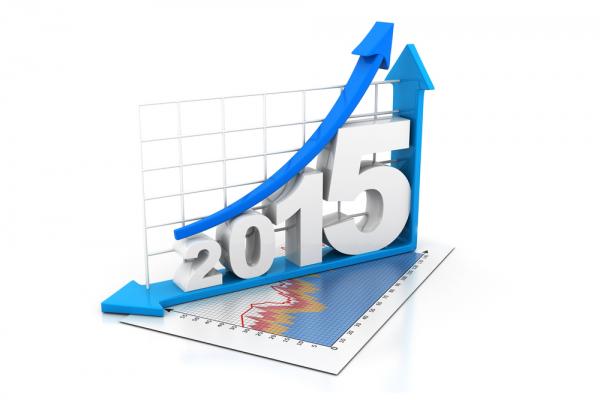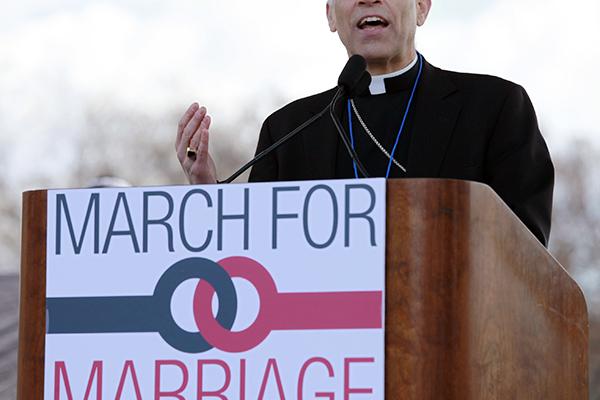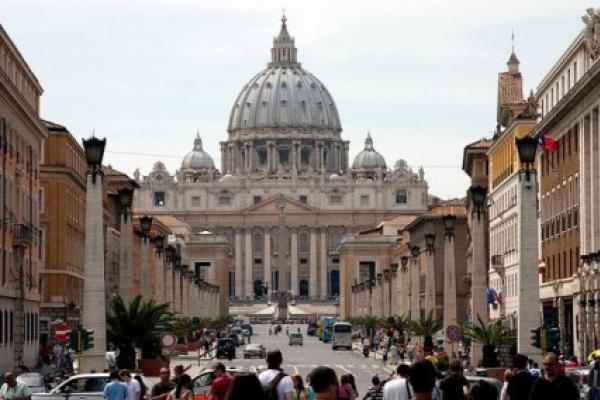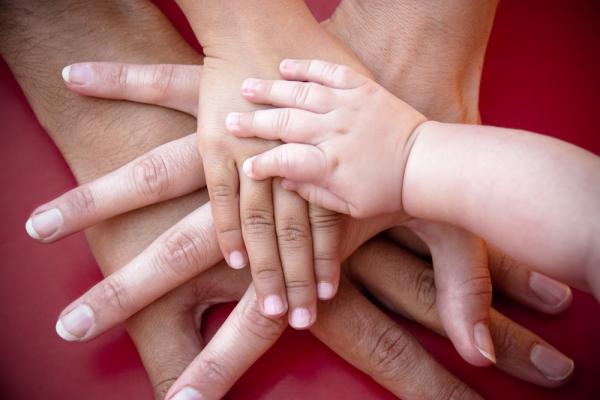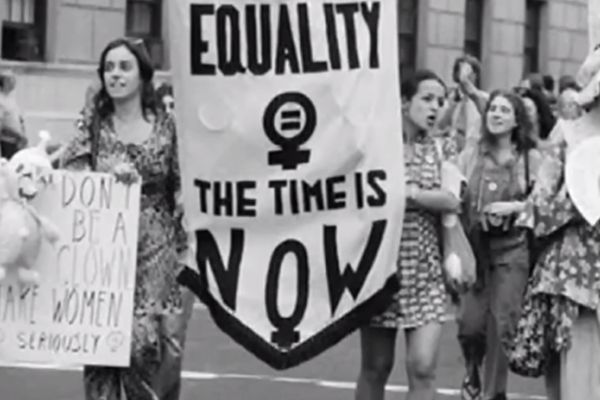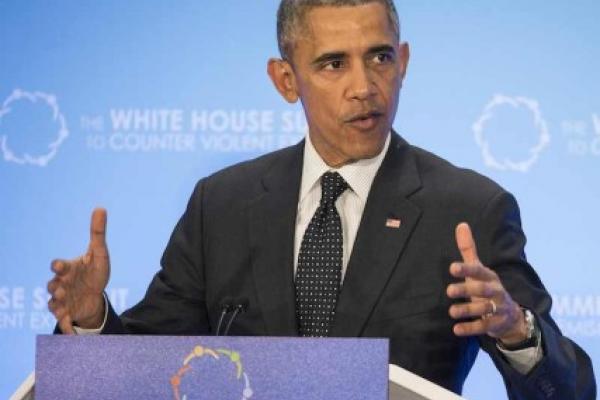How tough is it to create a racially diverse denomination? Consider a recent luncheon organized by the Southern Baptist Convention, the nation’s largest Protestant denomination.
About 100 Nashville-area evangelical leaders accepted invitations to a lunch hosted by the denomination’s policy arm, the Ethics & Religious Liberty Commission. On the agenda: a pitch for a spring summit and a short discussion by ERLC President Russell Moore about the need for churches to become more racially diverse.
The number of African-Americans who showed up for the lunch? Four (two of them denomination employees).
ERLC leaders originally planned a summit on bioethics. They quickly shifted gears after grand juries in November and December failed to indict police officers for the deaths of young unarmed black men. Moore’s social media remarks condemning the New York City jury’s decision not to indict the officer who killed Eric Garner were met with an angry backlash, some from people filling Southern Baptist pews and pulpits.
Black church leaders are greeting news of the summit with reactions ranging from polite skepticism to hopeful support.
We are only two months into 2015 and it has already proven to be a busy year. There is much to be hopeful for in this coming year and much work still to be done on changing the hearts and minds of those in positions of leadership. We are so thankful for our community of supporters who invest and encourage our mission and ministry!
“Sean Penn’s ‘Green Card’ comment may have ruined the entire Oscars.”
That was the headline from the Huffington Post. I didn’t watch the Oscars, but I’m always curious about pop-culture scandals. What could Sean Penn have said that was so egregious that it threatened to ruin “the entire Oscars?”
Penn delivered the award for Best Picture, which went to Birdman. After Penn opened the card, he took an awkward moment to gather his thoughts about how he would introduce the winner, whose director happened to be his long-time friend Alejandro Iñárritu.
That’s when Penn delivered the scandalous introduction, “And the Oscar goes to … Who gave this son of a bitch his green card? Birdman.”
Is the Islamic State — ISIS or ISIL — different from other Islamist terror groups? If so, is the difference one of substance or simply degree? Or is there any real difference at all?
The question preoccupies the best intelligence professionals and academic students of the Arab Muslim world, but so far has produced more confusion than certainty about what we’re witnessing.
Maybe we’re too close. Maybe we’d gain perspective by going back in time — to 1993, say, and an article by a Harvard history professor, Samuel Huntington, in the magazine Foreign Affairs and later in a book titled The Clash of Civilizations.
Huntington saw a grim future and a different kind of war. While nation-states remain principal players in world affairs, he wrote, the great conflicts of the future will be between “different civilizations.”
“The clash of civilizations will dominate global politics,” he wrote. “The fault lines between civilizations will be the battle lines of the future.”
It snuck up this year, as though I’d almost forgotten about it until I saw friends in another time zone posting Mardi Gras pictures. Mardi Gras is this week? I thought. That means Lent begins this week?! Maybe it’s because I don’t go to church right now, or because I’m not in a spiritual community like I was before I moved cities. But for whatever reason, it came fast and unexpected, and something inside won’t let me pass it up. As much as I disagree with some of the traditional teachings about Easter and various interpretations of why Jesus was crucified, I have always had a penchant for Lent.
Lent is a time that draws out the heart’s ability to draw nigh to your Creator. Of drawing closer to God, to others, to the wide open world around us. A time for spiritual reflection and inner examination. A time to pause. A time for simplicity. A 40-day season containing strong, beautiful symbolism. Death from life. Life from death. The two are inseparable. Hope is reborn, recycled out of crushed pain and heartache. The timing of this season enhances the meaning all the more to me, as we begin Lent in the waning winter, in which it is still snowing as I write this. But we end Lent well into spring.
San Francisco Archbishop Salvatore Cordileone has rejected criticism from state lawmakers over the use of morality clauses for Catholic schoolteachers, asking whether they would “hire a campaign manager who advocates policies contrary to those you stand for?”
The archdiocese sparked protests earlier this month when it unveiled morality clauses for four Catholic high school handbooks as well as for teacher labor contracts.
The handbooks single out church teaching against homosexual relations, same-sex marriage, abortion, artificial birth control and “reproductive technology,” women’s ordination, pornography, masturbation and human cloning, according to the National Catholic Reporter.
The language says that “administrators, faculty, and staff of any faith or no faith are expected to arrange and conduct their lives so as not to visibly contradict, undermine or deny” church doctrine and practice on those topics.
Five members of the state Assembly and three state senators sent Cordileone a letter urging him to remove the clauses, which they said were discriminatory and divisive.
The Italian government is on high alert after threats from the Islamic State called Italy “the nation signed with the blood of the cross.”
Italy is one of a handful of major Western counties that has not been victim of a large-scale terror assault since the Sept. 11 attacks in the U.S.
Italian officials fear extremists could enter the country amid the growing tide of refugees arriving by boat from North Africa. About 500 extra troops have been stationed to guard symbolic targets in Rome and monitor the streets of the capital for suspicious activity.
The video threat, released with images of 21 Coptic Christians from Egypt who were beheaded this month, warned that Islamic State forces were “south of Rome,” in Libya. At its closest point, Libya is little more than 100 miles from the Italian islands of Sicily and Sardinia.
This comes four months after the Islamic State’s propaganda magazine Dabiq ran a cover photo of the militant group’s flag flying above the obelisk in St. Peter’s Square in the Vatican with the headline: “The failed crusade.”
What do you want to pass on to your grandchildren? What will you give to future generations?
There’s a special spot on my shelf for books my grandparents handed down to me over the years. I cherish the collection of love poetry my grandfather gave my grandmother for a wedding anniversary decades ago. I treasure my grandfather’s old prayer book and hymnal. Depending on your family history, most of us will have at least a few old treasures from generations before.
Some things pass from one generation to another with special care—a family wedding ring, a chess set from the home country, old pictures. Other items, however, pass with less care and planning. My wife, for instance, has her grandmother’s old cookie jar. It’s made of cheap, simple glass and is completely unremarkable except for the memories of cookies eaten at grandma’s house it evokes.
Families aren’t the only ones thinking of passing things along. Politicians, skilled at tugging heartstrings, speak often of “future generations.”
Bras weren’t the only things the second-wave feminists burned in the ‘60s. But that’s all I learned about the movement in school and casual conversation (on the rare occasions when feminist movements were brought up). The documentary, She’s Beautiful When She’s Angry, fills in what our education system and historical imaginations leave out.
Second-wave feminists also burned oppressive patriarchy, definitions of feminine beauty, and, most poignant to me, their hard-earned diplomas. They literally set fire to bachelors degrees, masters degrees, and PhD certificates. An activist in the film explained, "We had graduated and learned nothing about women."
This documentary shows us what the textbooks didn’t and still don’t show often enough — the early, angry, undoubtedly beautiful grassroots radicals.
Of course, not all anger is beautiful. Some anger is abusive, relentless, and uncontrollable. I noticed three types of anger in the documentary — one beautiful, and two problematic.
President Obama said Feb. 19 that governments across the globe are obligated to confront the “warped ideologies” that lead to terrorism, “especially their attempt to use Islam to justify their violence.”
National leaders must also dispute claims that there is a clash of civilizations in the world, the president said during a second-day speech at the White House Summit on Confronting Violent Extremism.
“The notion that the West is at war with Islam is an ugly lie,” Obama said. “And all of us, regardless of our faith, have a responsibility to reject it.”
Obama also addressed summit delegates on Feb. 18 in a session devoted to discussing how local communities can help dissuade young people from following the path of violent extremism.

